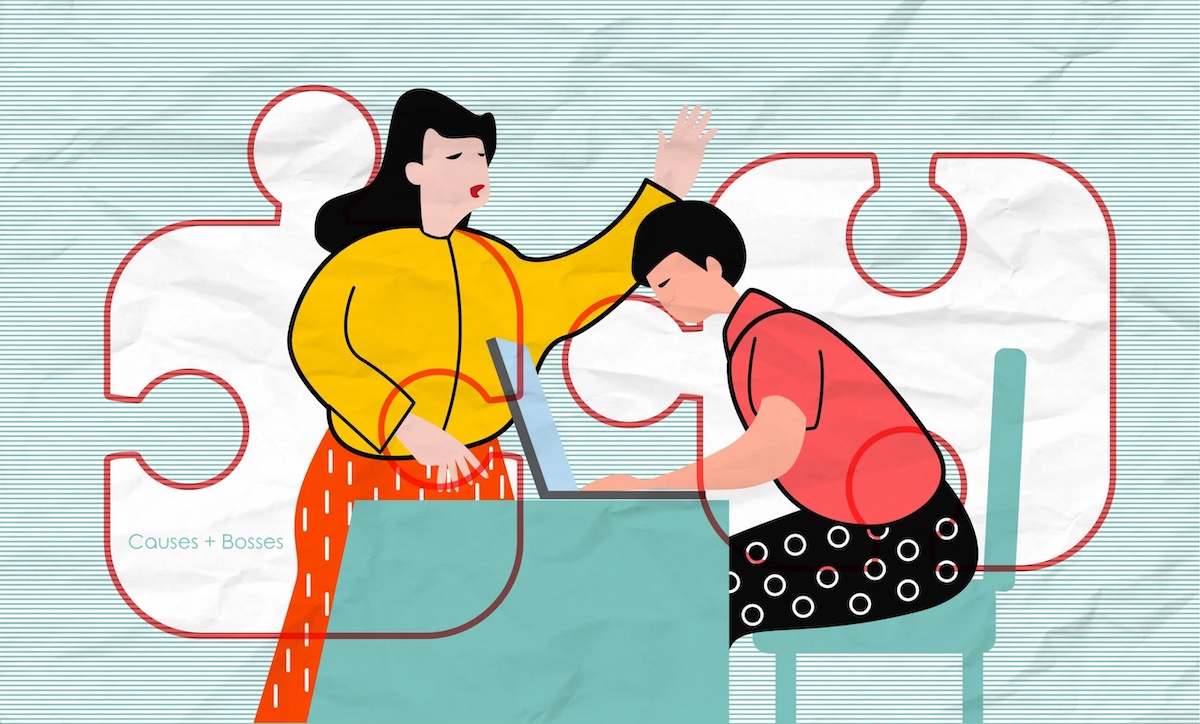A fox in sheep’s clothing

On Valentine’s Day, I got my heart broken.
But not in the way you’d expect; there were no teary goodbyes, no fading love letters, no grand romantic gestures gone wrong. Instead, I sat in front of my laptop, watching as my boss—someone who preached wellness, resilience, and “people-first” leadership—put on the performance of a lifetime.
“We can’t afford to pay you anymore,” they said, voice dripping with forced sympathy. “We need to prioritize paying our clients’ commission over keeping you.”
Their eyes welled up with what I can only describe as crocodile tears. It wasn’t cold—it was worse. It was fake.
For a while, I thought I was one of the lucky ones. I was 25, working remotely, and making good money. Compared to my peers, I felt ahead—I had a job in consulting, a manager in an international role, and the kind of salary that made my grandma raise her eyebrows in approval.
But looking back, I had no job security. I had the promise of health care, but not actually. I was working for a company that talked big about employee well-being yet never put the systems in place to back it up. My paycheck felt like proof that I was valued—until the moment I wasn’t.
Working remotely for a foreign company came with its challenges, but I thought I had landed somewhere good. My boss spoke about our team in the Philippines like we were a passion project—priding themselves on “opening doors” in developing countries, as if we were charity cases rather than qualified professionals they paid at a fraction of the cost.
It was a savior complex wrapped in buzzwords, and I had been too naive to question it.
The cracks had been forming for a while, but I didn’t see them for what they were. They built an entire career advising companies on ethical hiring, leadership, and employee engagement—yet when it came down to it, they handled people like disposable assets.
The moment that made my stomach drop wasn’t even about me. A client had expressed concern over a member of our team who was expecting. Without hesitation, my boss—who claimed to be an expert in leadership and employee well-being—shrugged it off.
“Don’t worry, it’s the Philippines,” they said. “They pop one out and get back to work the next week.”
I had spent months believing this was a leader who cared. But at that moment, I saw the truth: We weren’t people to them. We were numbers. A labor force oceans away. Easy to hire, easy to replace.
Then it was my turn. The layoff process was a masterclass in detachment. The five-minute Zoom call. The half-hearted emails. The legal loopholes that left employees scrambling with little recourse. It made me realize just how flawed the system is—not just in how people are let go but in how companies hire in the first place.
But it wasn’t just me. The more I asked around, the more I noticed a pattern.
There was always a reason—something that made each departure seem justifiable on the surface. But the stories never quite added up. One person was let go because their role was “redundant,” and another because of “downsizing.” Yet somehow, there was always room in the budget for things that weren’t essential—shiny new tools, expensive conferences, and vanity projects that never saw the light of day.
Employees were expected to give their all—to go the extra mile, to buy into the vision, to trust leadership. But leadership? Leadership was never held to the same standard.
I don’t think my boss set out to be the villain. I don’t think most business owners do. The reality is that running a company is hard. Balancing financials, keeping clients happy, and managing a team while trying to stay afloat—it’s a constant battle. Mistakes are made, missteps happen.
HR consulting firms like the one I worked for claim to champion employee well-being, but when it’s time to make the hard calls, their own values vanish into thin air.
At first, I blamed myself. Hard. Maybe I should have worked longer hours. Maybe I should have spoken up more, stayed invisible, been more agreeable, been more aggressive—maybe then, I would’ve been spared. I replayed every decision, every email, every meeting, searching for the moment I sealed my fate.
But then I realized something more important: No matter how hard I worked, how much I sacrificed, I was never going to thrive under a leader who was fundamentally flawed.
And I wasn’t alone—so many young professionals get stuck in toxic work cultures, thinking that if they just push a little harder, things will get better.
The victory, if you could call it that, is that I see things a bit more clearly now. I see through the polished LinkedIn posts, the HR jargon, and the foreign executives who disguise exploitation as “opportunity.” Some “leaders” are just great marketers of their image.
And I want others—young professionals, job hunters, even business owners—to see it, too.
Because we all deserve better than foxes in sheep’s clothing.
————-
Angelica Mariano, 26, is a communications strategist from the Philippines.

















